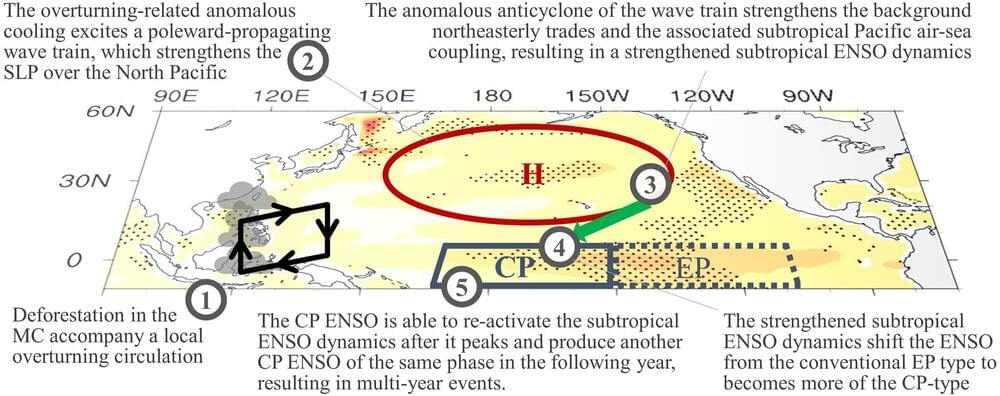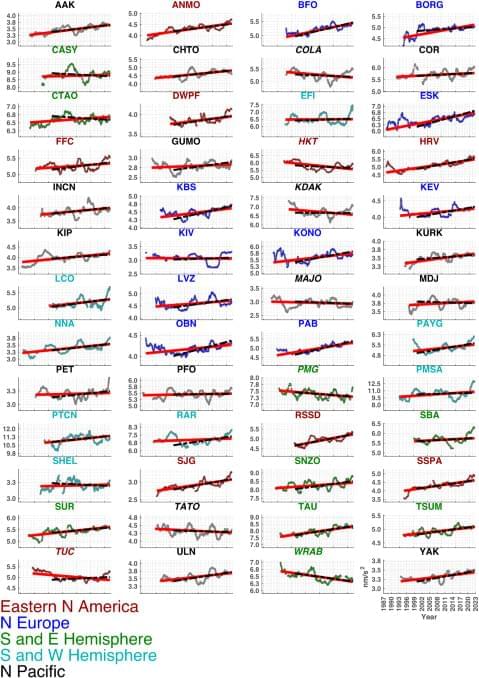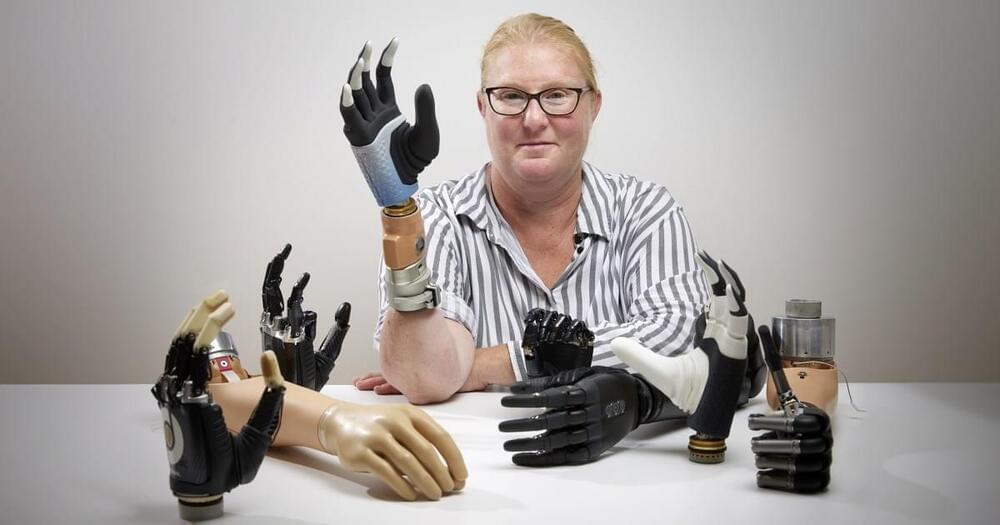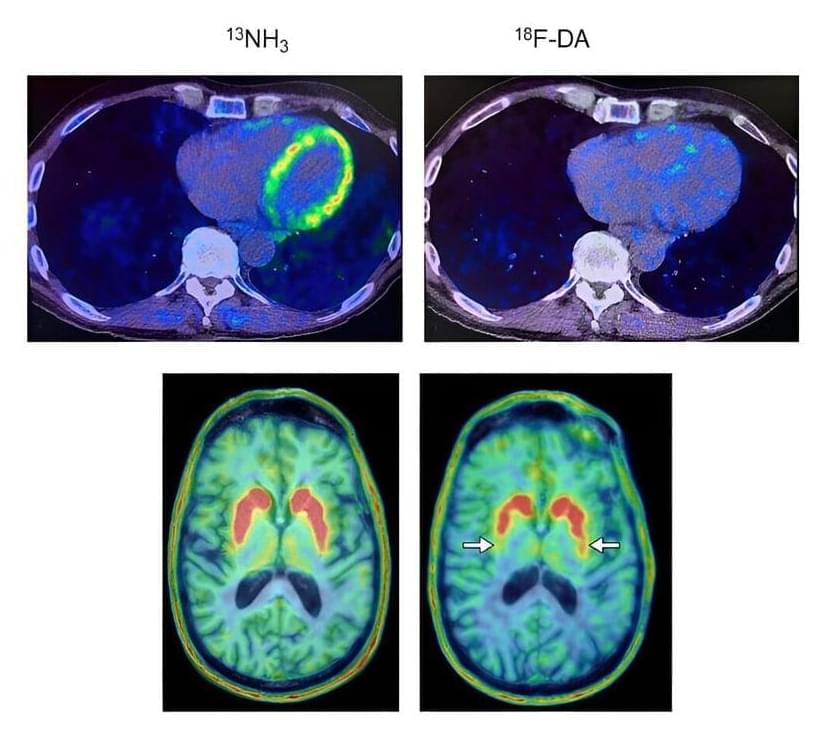Nov 8, 2023
Deforestation across the ‘Maritime Continent’ is making El Niño-Southern Oscillation more unpredictable, finds study
Posted by Saúl Morales Rodriguéz in category: climatology
El Niño-Southern Oscillation (ENSO) is a climate phenomenon occurring every 2–7 years in the tropical Pacific Ocean, associated with changes in air pressure east to west.
During El Niño events equatorial trade winds blowing west weaken, causing changes in air pressure and wind speed that move warm surface water eastward from the western Pacific to coastal South America. This results in a deeper thermocline (the depth at which sea temperature rapidly changes) that prevents the normal upwelling of cooler, nutrient-rich waters, having devastating impacts on marine food chains, as well as local communities reliant upon the fishing industry.
It also brings heavier and prolonged rainfall to South America, increasing the threat of flooding, while in Australia and Indonesia there is drought, posing hazards for water supply and irrigation for agriculture. During La Niña events, all off these conditions reverse.


















